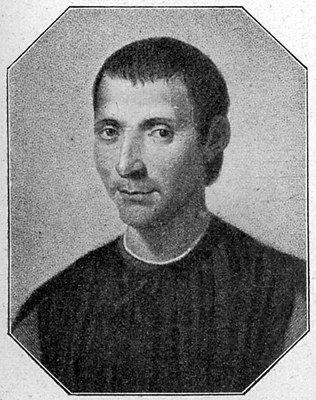Niccolò Machiavelli (1469-1527)
erstellt von
—
last modified
2020-05-25T11:31:48+02:00
public domain
public domain
Niccolò Machiavelli (1469–1527), lithography from a contemporary etching, 1905, unknown artist; source: Müller-Baden, Emanuel (Hg.): Bibliothek des allgemeinen und praktischen Wissens zum Studium und Selbstunterricht in den hauptsächlichsten Wissenszweigen und Sprachen, Berlin 1905, vol. 5, Seite 67; wikimedia commons, http://commons.wikimedia.org/wiki/File:Niccolo_Machiavelli.jpg, public domain.
Model Classical Antiquity@Model Classical Antiquity@(ÜB)@freigabe
Oriental Despotism@Oriental Despotism@(BE)@freigabe
State Forms and State Systems in Modern Europe@State Forms and State Systems@(BE)@freigabe

